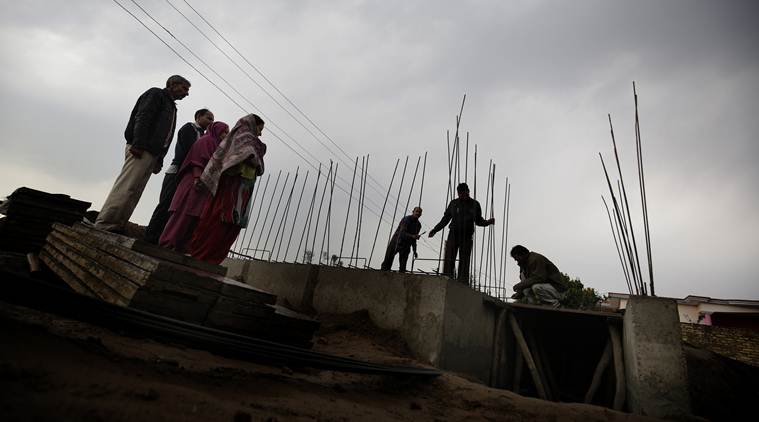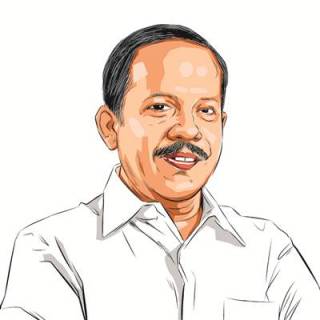Such a basket of pro-labour reforms is unique in recent history
The interim budget has kept in mind the interests of workers. This is the first time in recent history a government has done that.

For the first time in a long while, a Union budget has tried to care for workers. In recent times, we have witnessed mere sermons on the social sector in the previous budgets. The Bharatiya Mazdoor Sangh (BMS) had termed last year’s budget as totally disappointing. Expectations similar to the one created by this budget were engendered in the budget presented by Yashwant Sinha during the Atal Bihari Vajpayee government, even though Sinha later shifted to the capitalist camp. In the current interim budget, the finance minister has affirmed that 50 per cent of the GDP comes from the sweat and toil of 42 crore workers in the unorganised sector. This is a recognition of the role labour plays in the country’s economic progress. Let us hope that the pro-worker vision initiated this year will form a part of the future roadmap of India’s development.
Historically, Babasaheb Ambedkar’s tenure as India’s first labour minister in the Viceroy’s Council can be termed as the golden period for Indian labour. Ambedkar was also the architect of India’s labour law reforms. The Minimum Wages Act, Dearness Allowance (DA), Leave Benefit, Revision of Scale of Pay, right to strike and many other laws and policies for women and workers came about thanks to him. Ambedkaralso contributed to the shaping of the Employees State Insurance Act, Employees Provident Fund Act, Industrial Disputes Act and Factories Act. No government can justify to straying from the path forged by a great reformer like Ambedkar.
Since the advent of globalisation, labour reforms as a part of economic reforms have become contentious. The present government also had to face objections on this count, even from the BMS. It has become an article of faith for policy makers in successive governments that an industrial empire can be built only on the graveyard of workers’ rights. But the initial problems of the Narendra Modi government in the labour sector, fortunately, have been corrected to a considerable extent in recent days, mostly due to the non-compromising interference by BMS. The highly-contentious anti-labour reform process was stalled when PM Modi gave an assurance during the Indian Labour Conference that changes in labour laws will be brought about only after consulting with trade unions and other stakeholders. Since then, labour has benefited greatly from the change in direction.
The central government has doubled bonus benefits, maternity benefits, gratuity, Employee Provident Fund (EPF) coverage and more. Minimum wages have been revised from Rs 246 to Rs 333/350 per day. This was done at a time when the CPM-ruled Tripura state fixed the country’s lowest minimum wages at Rs75 per day. Employee’s State Insurance (ESI) eligibility ceiling, new ESI benefits, EPF minimum pension, honorarium for scheme workers were raised besides enhancing many insurance benefits. The long-pending demand of the neglected Gramin Dak Sevaks in the postal service to implement the Kamlesh Chandra Report was met by the central government. Besides, child labour was prohibited upto 14 years and wage payment through banks was made compulsory.
One demand of the trade unions, jointly, was that the labour departments, both at the Centre and in the states, must cease the delay in registering trade unions. The central government has, through a notification, decided that registration shall be deemed to have taken place after 45 days of application.
The trade unions and policy makers in the country were concerned by the fact that, at present, only about 7 per cent of the total 50 crore working population receives the benefits of the Minimum Wages Act. The new Labour Code on Wages presented in Parliament is historic and revolutionary. This law, if properly implemented, will not only change the face of Indian labour, but will also bring a sizeable proportion of the population above the poverty line. Similarly, the Labour Code on Social Security, which ensures about 14 benefits to the last worker, will also create history. There are certain provisions in it which need pruning. This golden chance of creating another milestone was delayed because it needs a better equipped policy and legislative machinery that can move faster.










.png)




























No hay comentarios:
Publicar un comentario